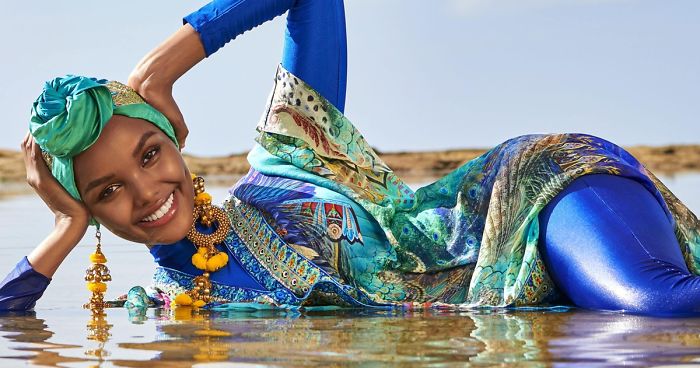
Sports Illustrated Makes History By Featuring A Model Wearing A Burkini And Hijab
This year’s Sports Illustrated Swimsuit issue will be a little different this time, with the definition of ‘swimsuit’ widened to include the modesty garment known as a burkini. The full-body swimwear is modeled by stunning 21-year-old Somali-American Halima Aden, who was born in the Kakuma Refugee Camp in Kenya before moving to the United States aged 7.
Image credits: SI_Swimsuit
While most Americans are used to seeing women wearing skimpy swimsuits in the famous magazine, women across the world have been covering up at the beach for hundreds of years now. This could be for cultural and religious reasons, or simply to avoid catching too much sun.
Modesty was the norm when the first swimsuits were invented in the 19th century; women in Victorian England would cover themselves from head to toe in billowing robes and dresses. In 1920’s America, women were routinely arrested by ‘swimsuit police’ for baring too much skin, with zealous police officers guarding ‘morality’ by measuring the length of women’s swimsuits to ensure they conformed to regulations.
Image credits: Sports Illustrated
Eventually, the swimwear ‘rules’ were relaxed, as the impracticality of swimming in heavy clothing was accepted. Swimwear became smaller and more streamlined until we arrived at where we are today; the bikini has become the norm.
The same can’t be said of all cultures though. Just because our ‘morality’ has changed recently, it doesn’t mean that others have to follow. Muslim women especially can feel uncomfortable when baring skin at the beach and have been under-represented when it comes to swimwear options. To address this, the ‘burkini’ was invented in 2016 and was designed to cover the whole body except the face, hands and feet while being light enough for swimming
Image credits: Sports Illustrated
The acceptability of the burkini is still under debate in some countries, as many argue that the point in modesty dress for Muslim women is to cover the outline and curves of a woman’s body. However, for others, it is a perfectly good solution that meets common requirements for a woman to cover all parts of her body except her hands and face (including covering her hair) when in mixed company.
Islamic tradition is fluid and interpreted differently in different parts of the world. What applies in Tunisia or Malaysia, for example, is quite different from expectations in Saudi Arabia or Iran. So this debate is one to be had amongst Muslims themselves.
Image credits: Sports Illustrated
Either way, we think that Halima looks absolutely stunning in her swimsuit, which she shot back in Kenya with photographer Yu Tsai.
“Young girls who wear a hijab should have women they look up to in any and every industry,” she told the BBC. “We are now seeing politicians, businesswomen, television reporters, and other successful hijabi women in visible roles and that is the message we need to be sending.”
Image credits: Sports Illustrated
“The response has been incredible and I’m so honored that Sports Illustrated has taken the step to showcase the beauty that modestly dressed women possess.”
Image credits: Sports Illustrated
Image credits: Sports Illustrated
Predictably, the reaction has been mixed elsewhere, with those resistant to change complaining about the ‘Islamification of America’ and other such hyperbolic rantings.
Image credits: Sports Illustrated
Image credits: Sports Illustrated
Sports Illustrated has made an effort to better reflect the diverse nature of the world in which we live lately, featuring women of different ethnicity, body shape and age. This is simply another step in the right direction.
Besides, there are still plenty of ‘traditional’ scantily-clad models in the issue to get swimwear fashion tips from. Because, obviously, that’s the reason why most people buy it. Am I right?
Image credits: Sports Illustrated
What do you think? Would you wear a burkini to the beach if you found one that suited your tastes? Will you buy the swimwear issue this year? Why, or why not? Let us know what you think in the comments!
Image credits: halima
Image credits: Sports Illustrated
Watch the video for behind the scenes of the photoshoot:
“I never really felt represented because I never could flip through a magazine and see a girl who was wearing a hijab.” #ShatteringPerceptions pic.twitter.com/EtNfpszcmy
— Sports Illustrated Swimsuit (@SI_Swimsuit) April 29, 2019
Image credits: GiGiHadid
Here’s what people had to say about Halima’s groundbreaking photoshoot
49Kviews
Share on FacebookSo the religious opression of women are now something we should glorify?
Cesi Baca, you're talking about the countries that are ruled with sharia, not everywhere. I lived in Turkey for a few years, in there women can be Muslims and not wear hijabs, could wear shorts and swimsuits as well without getting stoned or even bad looks. It's between them and their God, not you and internet know it all's. This woman appears on sports illustrated, apparently is a model and can afford to live in a country where she feels more free, if she was oppressed into wearing a hijab and being a Muslim, wouldn't she remove it the second she left the country? Most people wear it, because they want to. Stop making s**t up about the things you've no idea about. Sincerely, an atheist who doesn't give a s**t about what people believe in or what they choose to wear.
Load More Replies...Burkinis undoubtedly are a relief to women who would otherwise not be able to go swimming. Representing diversity is always good. But why would women not be allowed to do whatever they please to, wearing whatever they deem right? This is the question that needs to be asked. I am always vowing for tolerance, but intolerance should not be met with tolerance.
Yeah. For me, it's so weird that we live in the world that piece of clothing is still more important, that actions. If there is a god (I won't use capital letters here) who judges you by this, isn't afterlife a hell then?
Load More Replies...So the religious opression of women are now something we should glorify?
Cesi Baca, you're talking about the countries that are ruled with sharia, not everywhere. I lived in Turkey for a few years, in there women can be Muslims and not wear hijabs, could wear shorts and swimsuits as well without getting stoned or even bad looks. It's between them and their God, not you and internet know it all's. This woman appears on sports illustrated, apparently is a model and can afford to live in a country where she feels more free, if she was oppressed into wearing a hijab and being a Muslim, wouldn't she remove it the second she left the country? Most people wear it, because they want to. Stop making s**t up about the things you've no idea about. Sincerely, an atheist who doesn't give a s**t about what people believe in or what they choose to wear.
Load More Replies...Burkinis undoubtedly are a relief to women who would otherwise not be able to go swimming. Representing diversity is always good. But why would women not be allowed to do whatever they please to, wearing whatever they deem right? This is the question that needs to be asked. I am always vowing for tolerance, but intolerance should not be met with tolerance.
Yeah. For me, it's so weird that we live in the world that piece of clothing is still more important, that actions. If there is a god (I won't use capital letters here) who judges you by this, isn't afterlife a hell then?
Load More Replies...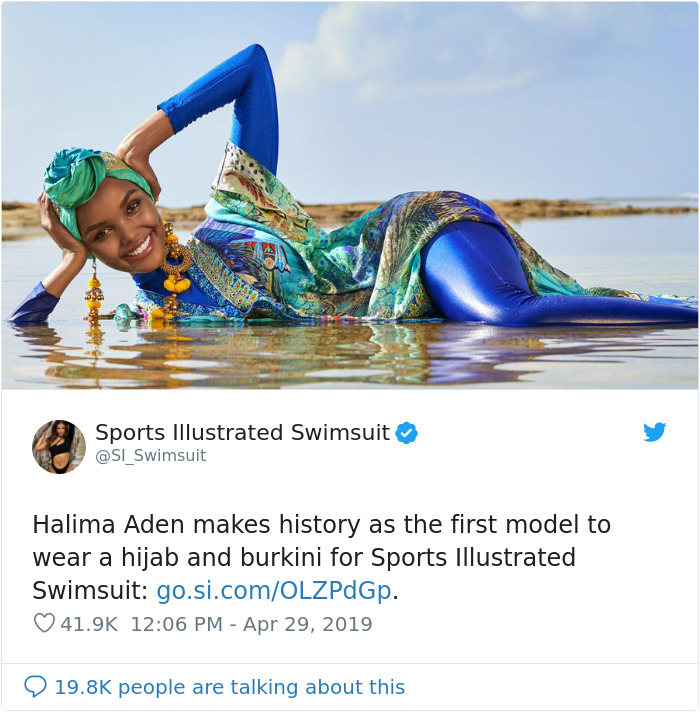
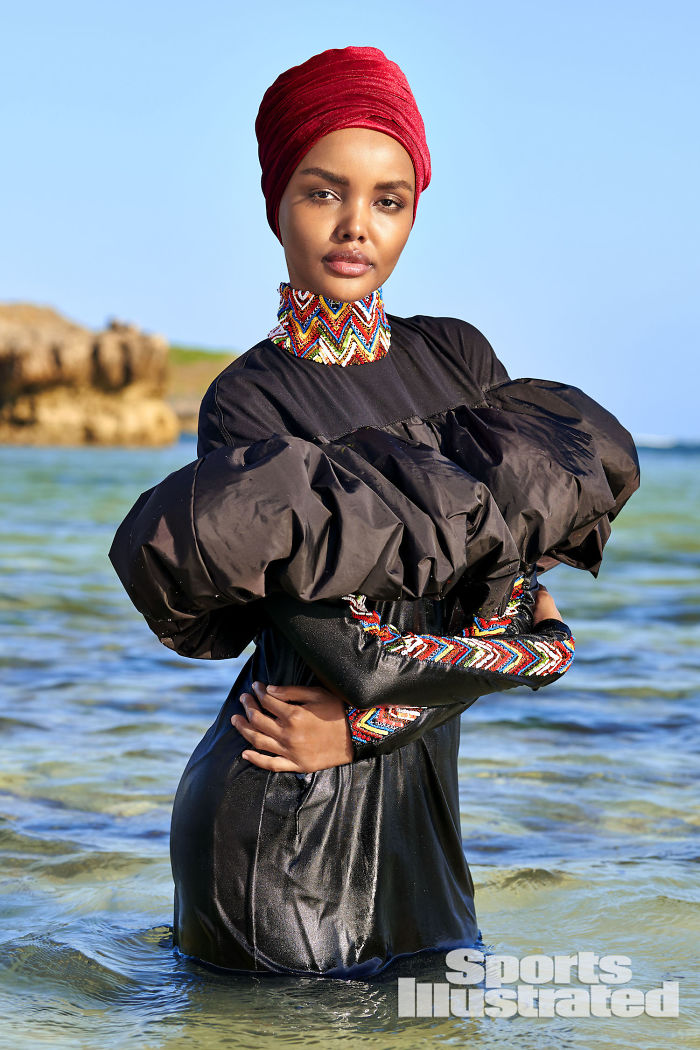
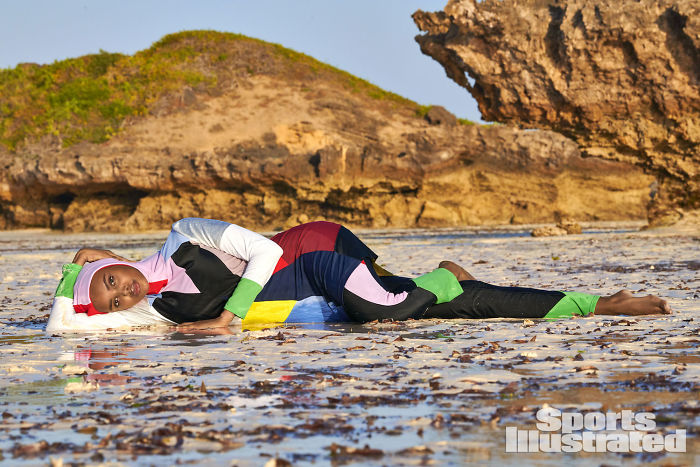
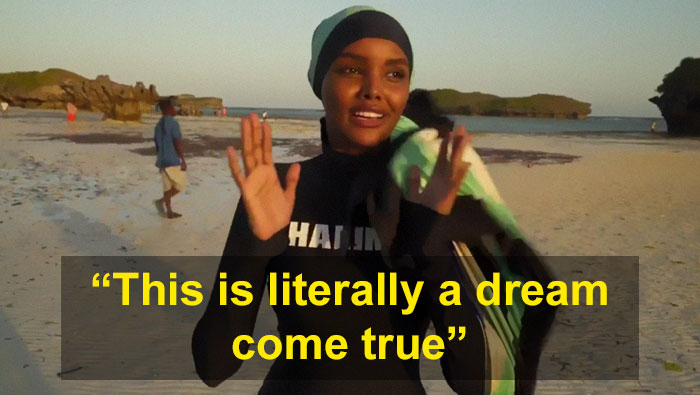
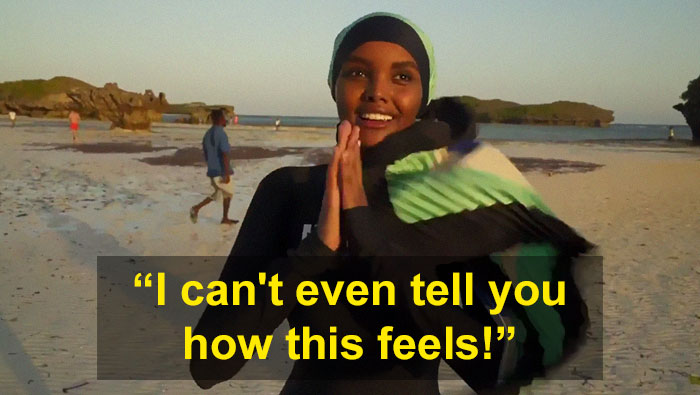

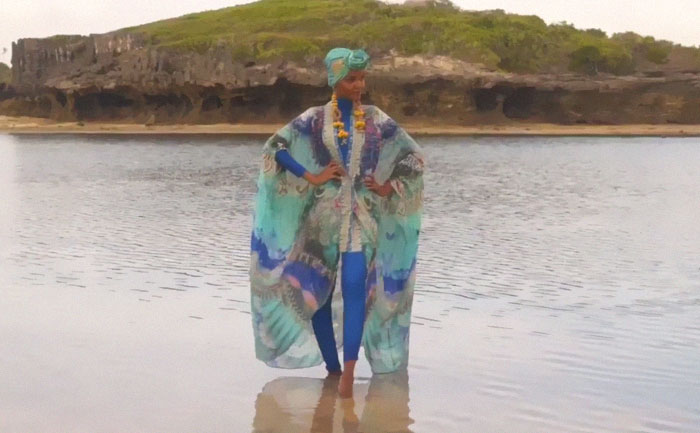
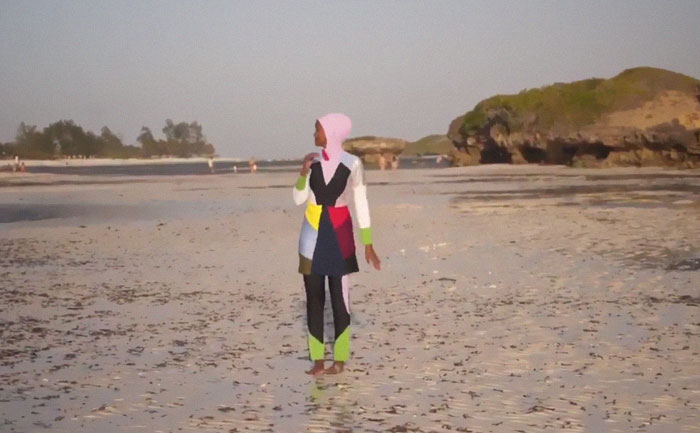
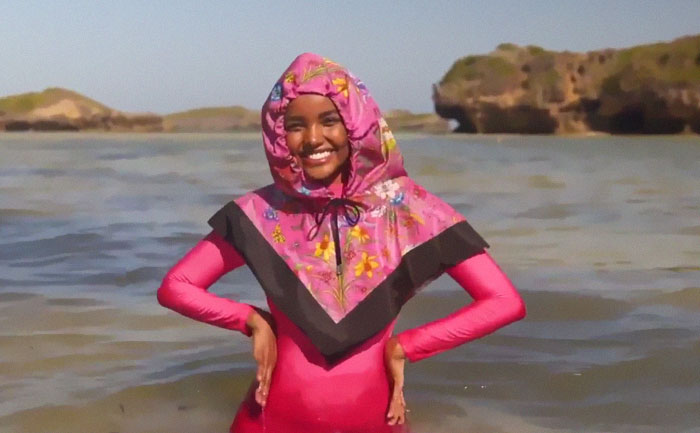
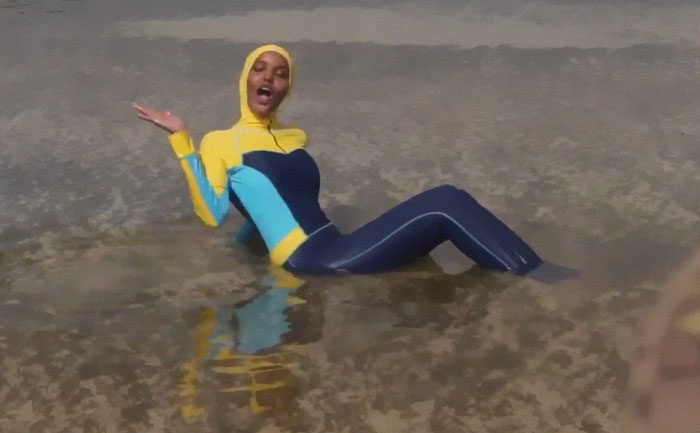
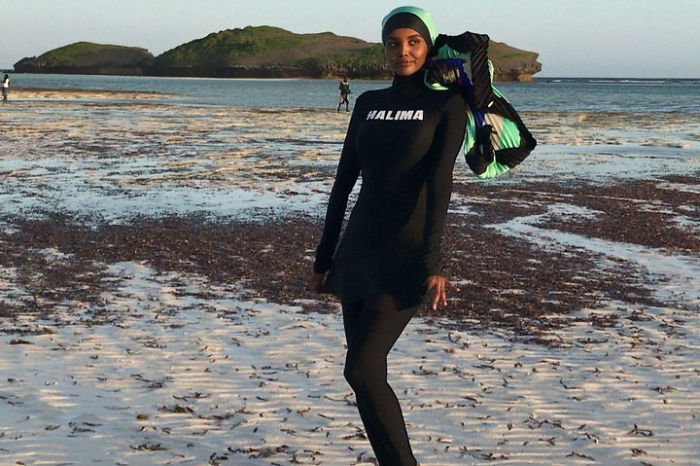
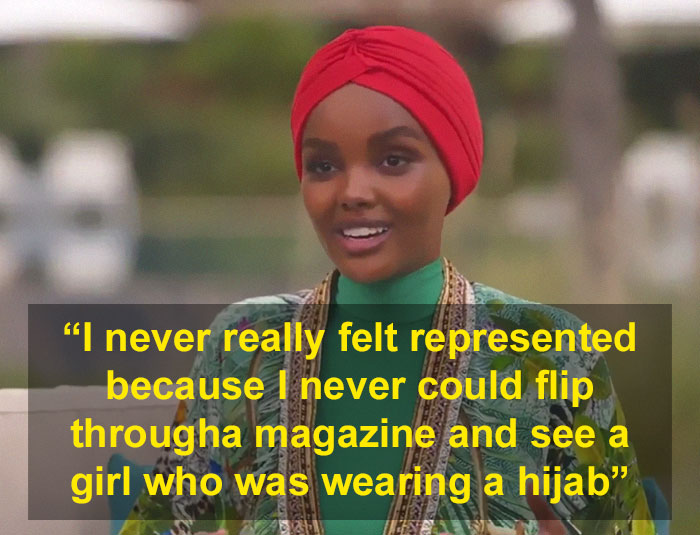
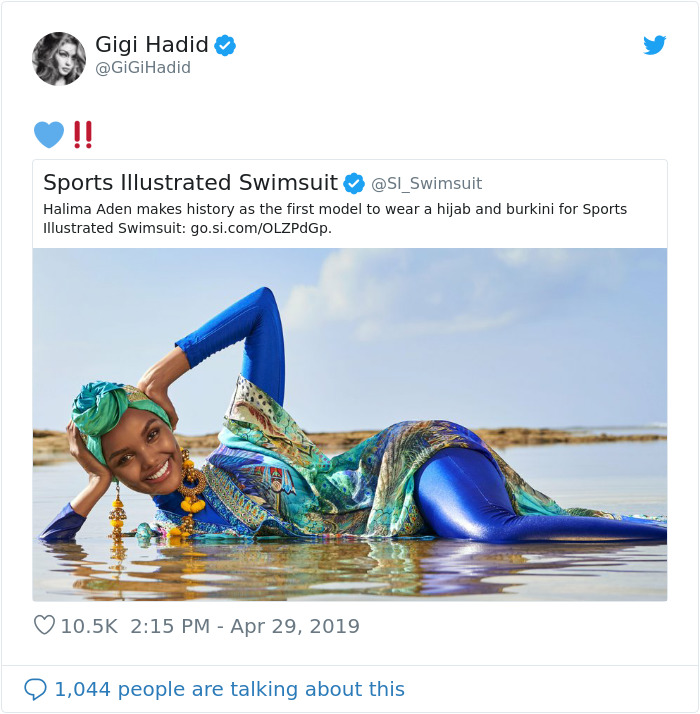





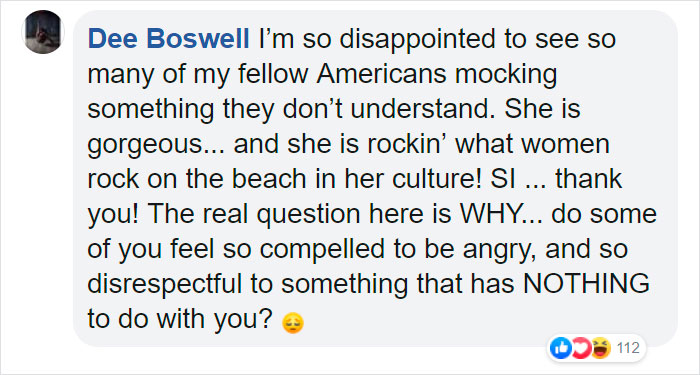













167
126